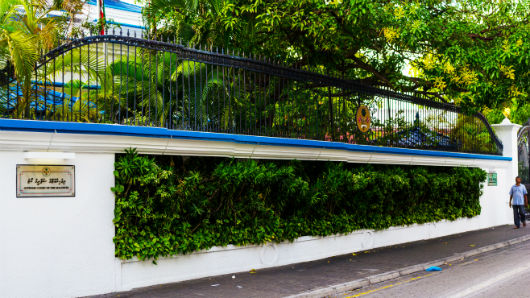Supreme court asked to summon high-profile witnesses for Nazim’s appeal
The Supreme Court has been asked to summon several high-profile witnesses in light of new evidence that could prove former Defence Minister Mohamed Nazim was framed by the police.

15 Jun 2016, 09:00
The Supreme Court has been asked to summon several high-profile witnesses in light of alleged new evidence that could prove former Defence Minister Mohamed Nazim was framed by the police.
In an hour-long statement delivered at a preliminary appeal hearing this morning, Nazim’s lawyer Husnu Suood said the evidence will show a policeman named Asif planted a pistol in Nazim’s bedroom after a warrant for raiding his apartment was obtained on false pretences.
Suood told the apex court that then-Tourism Minister Ahmed Adeeb had met with then-Prosecutor General Muhthaz Muhsin at the latter’s residence on the eve of the midnight raid on January 18 last year.
After a “frantic and worried” Adeeb told the PG that Nazim was planning to kill him, Suood claimed Police Commissioner Hussain Waheed came over a few minutes later, made a phone call, and instructed Station Inspector Azmath Abdulla to seek a warrant from the criminal court’s chief judge.
Become a member
Get full access to our archive and personalise your experience.
Already a member?
Discussion
No comments yet. Be the first to share your thoughts!
No comments yet. Be the first to join the conversation!
Join the Conversation
Sign in to share your thoughts under an alias and take part in the discussion. Independent journalism thrives on open, respectful debate — your voice matters.




